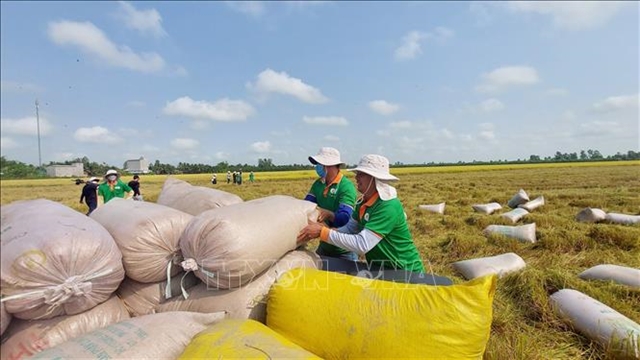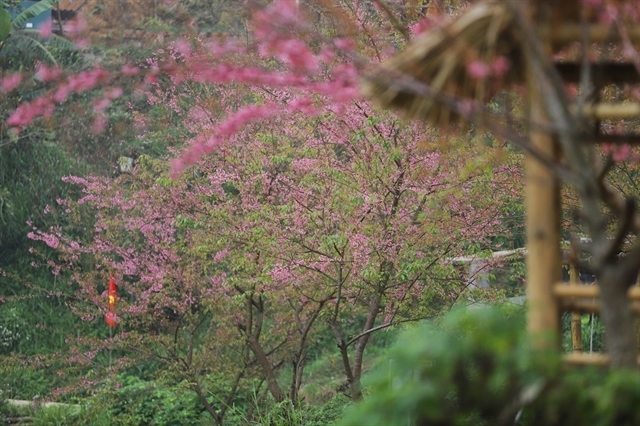 Features
Features

What do an 11-year-old Ha Noi resident and Danish composer Friedrich Kuhlau have in common? Just one thing. This week, Lu Thuc Nhu Anh played the first movement of a piano sonatina the German-born composer wrote 200 years ago, at the Vietnam National Academy of Music.
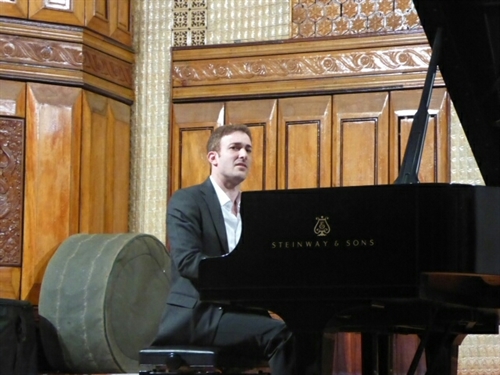 |
| Exuberance and passion: World-renowned Israeli pianist Yaron Kohlberg plays at National Academy of Music in Hà Nội. |
by Ruti Sinai
What do an 11-year-old Hanoian and Danish composer Friedrich Kuhlau have in common? Just one thing. This week, Lữ Thục Như Anh played the first movement of a piano sonatina the German-born composer wrote 200 years ago, at the Việt Nam National Academy of Music.
Seated at the grand Steinway piano in the wood-paneled auditorium, Nhu Anh gave a polished performance that was the culmination of a three-day workshop with world-renowned Israeli pianist Yaron Kohlberg.
Như Anh was one of six pianists, aged eight to 14, hand-picked for the unique project, which brought together raw talent and a maestro who helped shape it into a poised whole.
Dressed in pastel-coloured organza dresses, with bows in their hair, the two Vietnamese and four Japanese girls played an eclectic repertoire, starting with the first movement of Beethoven’s Sonata No 1, performed by eight-year-old Momo Hamajima, whose feet could not reach the piano pedals (she was provided with a pedal-extender).
A missed staccato or an occasional false note did nothing to diminish from the pure enjoyment of the fresh talent so intently dedicated to music written hundreds of years ago on a faraway continent.
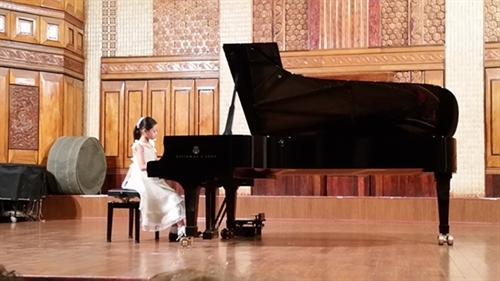 |
| Mozart on iPhone: Lữ Thục Như Anh, 11, plays at a June 27 National Academy of Music recital. |
The joys of ice cream
Như Anh finds nothing strange about her love of Beethoven, Mozart and even of the less-known Kuhlau. She downloads their works onto her phone and listens to them as she does to jazz and contemporary music.
She started playing when she was seven. Her exercise regimen is hardly rigorous – an hour or two on school days, three or four on weekends and before tests at the Academy. This leaves her time for friends and the sports she loves – swimming, badminton and basketball.
“Yaron [Kohlberg] taught me how to perform, he gave me confidence. I wasn’t nervous,” says Như Anh. “In my regular lessons I learned the notes and the technique. But he told us to imagine and feel the music. He said ‘imagine the joy of having ice cream, of going to the park to see flowers or looking at the moon’.”
The workshop was the brainchild of Einat Halevy-Levin, an Israeli social entrepreneur and mother of four living in Hà Nội. For the past five years, Halevy-Levin has involved herself intensely in varied aspects of Việt Nam’s social and cultural life, from organising projects for disabled children to parenting lectures on how to raise kids to be independent and creative.
“I decided on the piano workshop with an emphasis on creativity and expressivity as part of my vision of encouraging artistic expression and creative thinking. Many of the children and youths I meet display impressive abilities – the emphasis on self-expression opens up a whole host of possibilities for them,” she says. “In Israel, creative thinking is one of the most important social and economic growth engines.”
Kohlberg, 33, who has appeared on dozens of the world’s top stages, does not usually teach except for occasional master classes, but when Halevy-Levin approached him with the idea of a creative development workshop for young pianists, he was intrigued.
“The workshop focused on how to understand the compositions they had chosen to play, how to take music notes and turn them into a work of art using imagery familiar to the girls, how to sense the character of the work based on the composer’s instructions,” Kohlberg explains.
No less important was preparing the girls for an actual performance, including their posture in front of the piano and even how to take a bow.
“Appearing before an audience and playing at home are two vastly different things,” he says.
“The girls are very talented and the format was great,” says Associate Professor Nguyễn Minh Ánh, deputy rector of training and performance at the National Academy of Music.
“The children got to experience what it was like playing on stage, in front of a crowd. By learning from a world-class pianist, they were able to express different emotions like happiness or sadness or humour... when the music requires them to.”
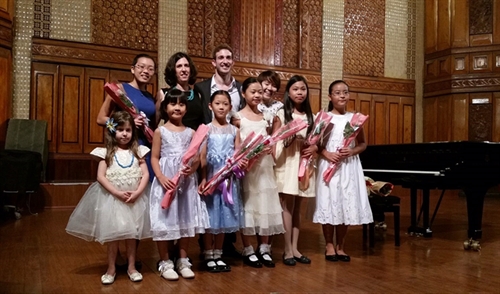 |
| Fresh talent: Participants in a three-day piano workshop at the Academy of Music with maestro Yaron Kohlberg (2nd row, 3rd from left) and Einat Halevy-Levin (2nd row, 2nd from left), who initiated the project. |
Fusing East and West
Kohlberg’s career spans both East and West. Although he grew up in Israel and received his musical training there, he performs mostly abroad and has lived in various countries, including four years in Berlin. For the past year he has been living in the Chinese city of Chengdu and performing all over the country.
“There’s a huge number of children throughout Asia who play piano,” he says. “I think their attraction to Western music is partly to do with globalisation – in recent decades many students from the East travel to study in the West and bring this culture back home with them.
“There’s also an understanding that studying Western music in general, and piano in particular, can help the development of creativity and mental abilities of children.”
After the girls’ performance, Kohlberg treated them and the audience to his own talents, with works by Debussy Khachaturian and Rachmaninoff, and then, on a lighter note, with an adaptation by a Russian friend to the theme music of Star Wars.
He then worked up a sweat with an exuberant rendition of the internationally known Israeli folk song Hava Nagila, Hebrew for “Let us be merry”. And merry it was. The Vietnamese, Japanese and Israeli audience broke into rhythmic clapping in accompaniment to the music.
For Như Anh, it was inspirational, although she still thinks she wants to be a scientist when she grows up, maybe a piano teacher but not a professional pianist.
“Yaron was funny, he gave me confidence, but piano will be a hobby,” she says. What field of science interests her? “The stars,” she answers. — VNS




